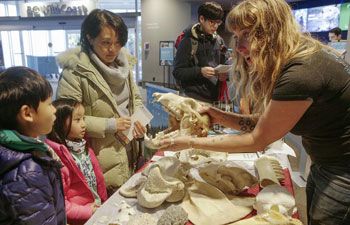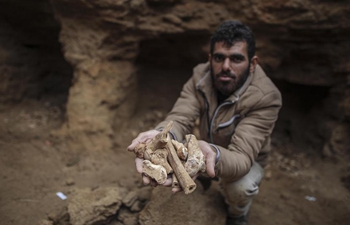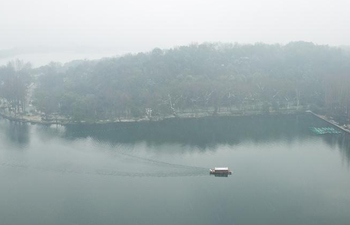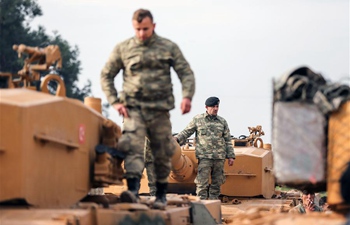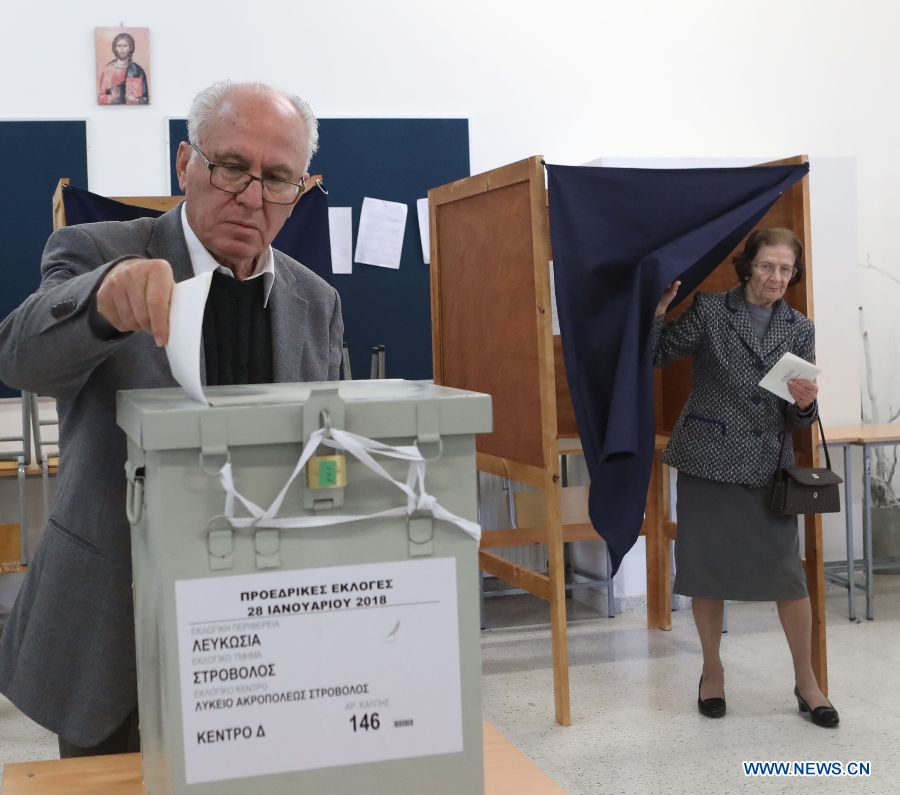
A Cypriot (L) votes at a polling station in Nicosia, Cyprus, Jan. 28, 2018. Cypriots voted on Sunday in a presidential election which is said to be critical for the resumption of stalled peace negotiations for the reunification of Cyprus. (Xinhua/PIO)
NICOSIA, Jan. 28 (Xinhua) -- Cypriots voted on Sunday in a presidential election which is said to be critical for the resumption of stalled peace negotiations for the reunification of Cyprus.
The elections are contested by nine candidates including outgoing President Nicos Anastasiades, who is seeking a second five-year term.
Opinion polls suggested that no candidate will be an outright winner, making a run-off vote on Feb. 4 necessary.
Only Greek Cypriots are voting for the president under Cyprus's 1960 constitution, with Turkish Cypriots electing the vice president.
However, Turkish Cypriots pulled out of the state in 1964 after intercommunal fighting which was instigated by nationalists who wanted a separate Turkish Cypriot state.
There are 551,000 eligible voters.
Voting started at 7:00 a.m. local time (0500 GMT) and voting booths will close at 6:00 p.m. (1600 GMT).
Exit polls by the five main television channels will be released moments after the voting being declared over, giving an indication of the voting trends.
Chief Election Officer Demetris Demetriou said final results are due shortly after 8.30 p.m. (1830 GMT), though the trend will be predicted much earlier.
All opinion polls suggested that Anastasiades will lead the pack of nine candidates in today's election and will be an easy winner in the run-off in a week, whoever his challenger may be.
Competing for the second place that will lead to the run-off are center candidate Nicolas Papadopoulos, who is supported by his own Democratic Party and three other smaller center parties, and Stavros Malas, who is supported by the main opposition left-wing Progressive Party of Working People (AKEL).
Malas, a genetics scientist, was also the candidate supported by the AKEL in the 2013 elections, but lost to Anastasiades.
Papadopoulos is the son of former president Tassos Papadopoulos who led the campaign for the rejection by Greek Cypriots of a United Nations blueprint for the solution to the Cyprus problem in 2014.
He said that if being elected, he will seek to re-define the terms of the peace negotiations that have been ongoing for several decades, claiming that past presidents had made concessions to the Turkish Cypriots which are disproportional to their population ratio of about 20 percent.
Analysts say that should Papadopoulos become president there will be a minimal prospect of peace negotiation resumption.
Both Anastasiades and Malas favor an early resumption of peace talks with Turkish Cypriots to reunify the eastern Mediterranean island.
A stalemate would mean continuation of the present partition of Cyprus, which started when Turkey sent its troops to occupy 37 percent of the island's territory, reacting to a coup organized by the military rulers of Greece in 1974.





